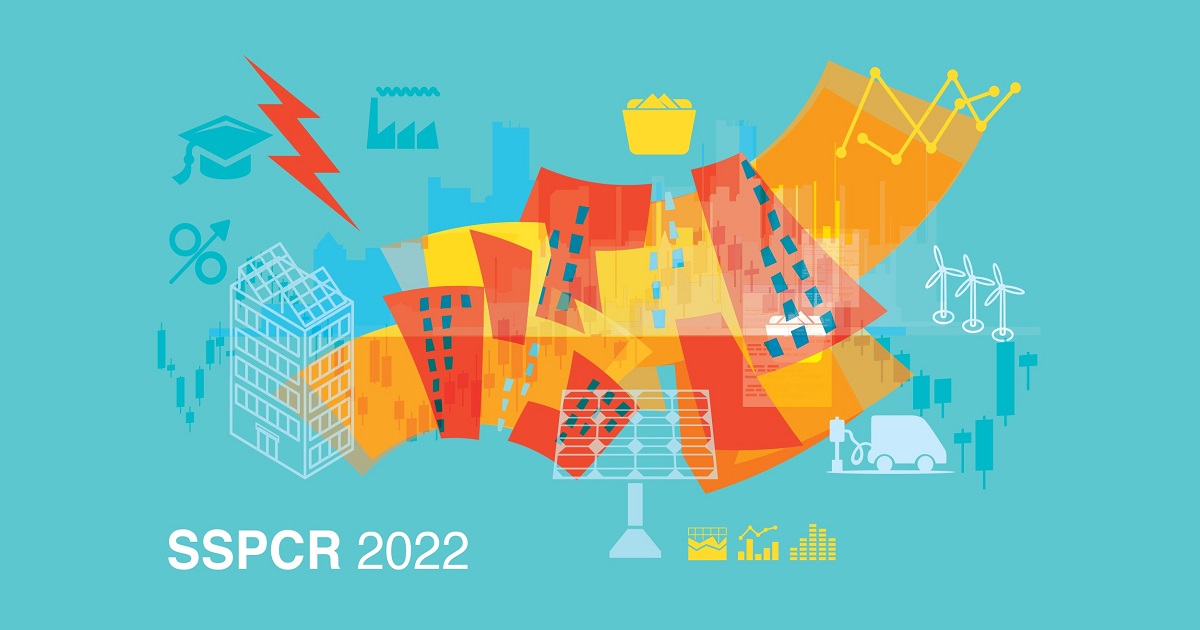Contribution of Smart City Solutions to Positive Energy Districts and Climate-Neutral Cities
A special issue of Smart Cities (ISSN 2624-6511).
Deadline for manuscript submissions: closed (28 February 2023) | Viewed by 13665

Special Issue Editors
Interests: smart cities; sustainable urban development; carbon-neutral cities; evaluation; indicators; decision support tools; multi-criteria decision analysis
Special Issues, Collections and Topics in MDPI journals
Interests: PED; urban planning; smart city strategies; climate-neutral cities; urban innovation; multiple benefits; appraisal and evaluation
Special Issues, Collections and Topics in MDPI journals
Interests: life cycle assessment; ecodesign; net-zero energy buildings; environmental sustainability; sustainable buildings; renewable energy technologies
Special Issues, Collections and Topics in MDPI journals
Special Issue Information
Dear Colleagues,
As nations are lagging behind the globally agreed climate goals set in the Paris Agreement, there is a need for more ambitious solutions. Cities have become key players in climate action as they provide the right scale to implement policies into concrete actions in response to societal needs. In consequence, the following goals have been set in Europe: 100 positive energy districts (PEDs) by 2025 and 100 climate-neutral cities (CNCs) by 2030. These goals call for immediate concrete action and innovative new approaches.
Smart city interventions address urban challenges with integrated solutions that are expected to yield energy resource use efficiency, resilience towards climate change, as well as positive environmental, economic and social outcomes (i.e., multiple benefits). They thus have important potential for PED and CNC development.
In this context, this Special Issue is seeking contributions that show progress towards energy positiveness or carbon neutrality at the urban level. Submissions on the following topics are particularly welcome:
- Case studies on positive energy districts (PEDs) and climate-neutral cities (CNCs);
- Impact assessment methods and appraisal and evaluation tools related to PEDs and CNCs;
- Indicators and sustainability frameworks for PEDs and CNCs;
- Integrated environmental, economic, and social analyses of PEDs and CNCs;
- Planning and decision support tools (including multi-criteria decision analysis and GIS-based spatial approaches) for PEDs and CNCs;
- Simulation and modelling of and scenario-based approaches to PEDs and CNCs.
This Special Issue, promoted by the International Energy Agency Energy in Buildings and Communities Annex 83 “Positive Energy Districts” (Subtask-C) in cooperation with the European Cooperation in Science and Technology (COST) Action EU PED-NET (WG3) and EU Smart Cities and Communities projects (Monitoring & Evaluation Task group) will focus on tackling the fundamental aspects of sustainability assessment in positive energy districts, proposing advancements within the field, and promoting a holistic approach aimed at breaking the silos of knowledge as the only way forward. Authors participating in the Smart and Sustainable Planning for Cities and Regions - SSPCR 2022 international conference 18–22 July 2022 in Bolzano (Italy) (see https://www.sspcr.eurac.edu/) are invited to submit their papers to this Special Issue (see dedicated session “Towards a Sustainability Assessment of Positive Energy Districts: Methodologies, Case Studies and Applications" https://www.sspcr.eurac.edu/session-towards-a-sustainability-assessment-of-positive-energy-districts/).
Mr. Aapo Huovila
Dr. Adriano Bisello
Dr. Francesco Guarino
Guest Editors
Manuscript Submission Information
Manuscripts should be submitted online at www.mdpi.com by registering and logging in to this website. Once you are registered, click here to go to the submission form. Manuscripts can be submitted until the deadline. All submissions that pass pre-check are peer-reviewed. Accepted papers will be published continuously in the journal (as soon as accepted) and will be listed together on the special issue website. Research articles, review articles as well as short communications are invited. For planned papers, a title and short abstract (about 100 words) can be sent to the Editorial Office for announcement on this website.
Submitted manuscripts should not have been published previously, nor be under consideration for publication elsewhere (except conference proceedings papers). All manuscripts are thoroughly refereed through a single-blind peer-review process. A guide for authors and other relevant information for submission of manuscripts is available on the Instructions for Authors page. Smart Cities is an international peer-reviewed open access semimonthly journal published by MDPI.
Please visit the Instructions for Authors page before submitting a manuscript. The Article Processing Charge (APC) for publication in this open access journal is 2000 CHF (Swiss Francs). Submitted papers should be well formatted and use good English. Authors may use MDPI's English editing service prior to publication or during author revisions.
Keywords
- positive energy districts
- climate-neutral cities
- smart cities
- assessment methods
- key performance indicators
- impact assessment
Benefits of Publishing in a Special Issue
- Ease of navigation: Grouping papers by topic helps scholars navigate broad scope journals more efficiently.
- Greater discoverability: Special Issues support the reach and impact of scientific research. Articles in Special Issues are more discoverable and cited more frequently.
- Expansion of research network: Special Issues facilitate connections among authors, fostering scientific collaborations.
- External promotion: Articles in Special Issues are often promoted through the journal's social media, increasing their visibility.
- e-Book format: Special Issues with more than 10 articles can be published as dedicated e-books, ensuring wide and rapid dissemination.
Further information on MDPI's Special Issue polices can be found here.







